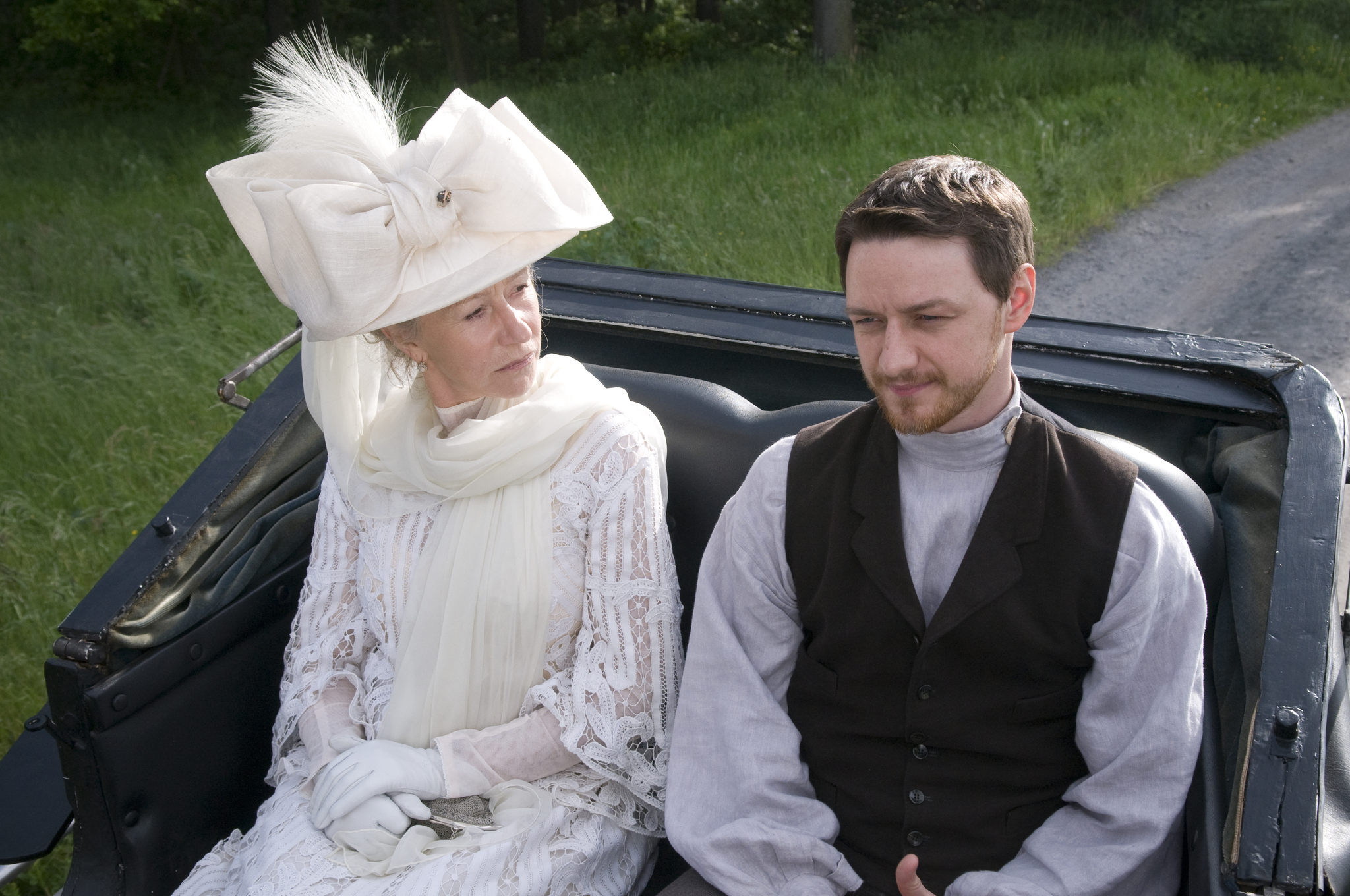The Last Station (2009)

“The Last Station” (2009), directed by Michael Hoffman, is a captivating period drama that takes viewers on an emotional journey through the last year of the life of one of the greatest literary figures of all time, Leo Tolstoy. Based on Jay Parini’s novel, the film offers a rich and nuanced portrayal of Tolstoy’s struggles, both personal and philosophical, during his final days. The film’s central themes revolve around love, ideology, and the tension between Tolstoy’s public image and his private life. These elements are skillfully interwoven into a narrative that keeps the audience emotionally engaged.
At the heart of the film is the relationship between Tolstoy and his wife, Sofia, portrayed by Helen Mirren. Sofia is portrayed as a woman deeply devoted to her husband, yet caught in the turbulence of Tolstoy’s radical philosophical ideas and his growing disillusionment with his own wealth and legacy. The tension between their love and ideological differences forms the emotional core of the story. Christopher Plummer’s performance as the aging Tolstoy is deeply moving, capturing the complexity of a man torn between his love for his wife and his desire to escape the material world and embrace a more ascetic lifestyle.
The ideological conflict in the film is further explored through the character of Vladimir Chertkov, a devoted follower of Tolstoy’s teachings. Played by Paul Giamatti, Chertkov represents the radical elements of Tolstoy’s philosophical circle, who push the author toward more extreme positions. His relationship with Tolstoy is one of admiration, but also manipulation, as he seeks to control the direction of the author’s legacy. The contrasting personalities of Chertkov and Sofia create a fascinating dynamic, highlighting the complexity of Tolstoy’s life and the competing forces that shaped his final years.
In addition to the powerful performances by the lead actors, the film is enriched by the supporting cast, including James McAvoy, who plays Valentin Bulgakov, a young Tolstoyan who becomes embroiled in the turmoil surrounding the author’s last months. Bulgakov’s perspective offers a unique window into the unfolding drama, as he navigates the conflicting loyalties to both Tolstoy and his wife. Through Bulgakov’s eyes, the audience gains insight into the intense emotional and ideological conflicts that defined the final chapter of Tolstoy’s life.

Overall, “The Last Station” is a thought-provoking and poignant exploration of a literary giant’s final days. The film deftly captures the tension between love and ideology, personal struggle, and the quest for meaning. The stellar performances, combined with the historical depth of the story, make it a powerful and unforgettable cinematic experience that leaves a lasting impact on its viewers. The film not only serves as a window into Tolstoy’s life but also invites reflection on the complexities of human nature, legacy, and the search for truth.











